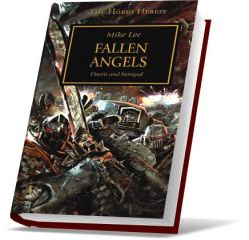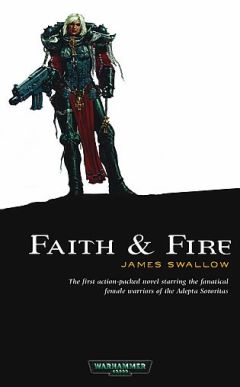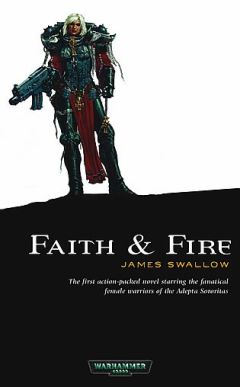Пользователь - WORLDS END
На электронном книжном портале my-library.info можно читать бесплатно книги онлайн без регистрации, в том числе Пользователь - WORLDS END. Жанр: Прочее издательство неизвестно, год 2004. В онлайн доступе вы получите полную версию книги с кратким содержанием для ознакомления, сможете читать аннотацию к книге (предисловие), увидеть рецензии тех, кто произведение уже прочитал и их экспертное мнение о прочитанном.
Кроме того, в библиотеке онлайн my-library.info вы найдете много новинок, которые заслуживают вашего внимания.

Пользователь - WORLDS END краткое содержание
WORLDS END читать онлайн бесплатно
For the first time Lanny understood a remark which he had heard his mother make; she would not "pay the price." She might have been rich, she might have had a title and lived in a palace and sailed about in a yacht like her friends, Mr. and Mrs. Hackabury; but she preferred to be true to her painter. Lanny decided that this was a truly romantic situation. Marcel was too poor to marry her; or perhaps they thought Robbie wouldn't like it. The boy suddenly realized that it was exciting to have such a beautiful mother and to share the secrets- of her heart.
IX
The two, returning from the visit to the doctor, came to their home, and Lanny followed Beauty into her room. She sat down, and he went and knelt by her, and put his head against her and his arms around her waist. That way he couldn't see her face, nor she his, and it would be less embarrassing. "Beauty," he whispered, "I want to tell you something."
"Yes, dear?"
"I know about Marcel."
He felt her give a gasp. "Lanny - how" - and then: "That doctor?" "He doesn't know - but I guessed it. I want to tell you, it's all right with me."
There was a pause; then to his astonishment, Beauty put her face in her hands and burst into tears. She sobbed and sobbed, and only after some time managed to blurt out: "Oh, Lanny, I was so afraid! I thought you'd hate me!"
"But why should I?" asked the boy. "We are going to understand each other, always - and be happy."
6
Arms and the Man
I
IT WAS February; springtime on the Riviera. The garden was carpeted with irises and anemones, and overhead the acacia trees were masses of gold. It was the height of the "season"; the boulevards blooming with gay parasols trimmed with lace and with large, floppy hats with flowers and fruits on them. On the beaches the ladies wore costumes so fragile that it seemed too bad to take them into the water, and many didn't. There was opera every night, and gambling in scores of casinos, and dancing to the music of "nigger bands" - thumping and pounding on the Cфte d'Azur as if it were the Gold Coast of Africa.
There had come a postcard from Robbie in London, then another from Constantinople, and now a "wireless" from a steamship expected to dock in Marseille next day. Beauty having engagements, Pierre took Lanny in the car to meet him. It was the Route Nationale,
the main highway along the shore, becoming ever more crowded with traffic, so that the authorities were talking about widening and improving it; but to get things done took a long time in a land of bureaucracy. The traveler passed scenes of great natural beauty, embellished with advertisements of brandies, cigars, and mineral waters. You wound upward into the Estиrels, where the landscape was red and the road dangerous. Then came the Maures, still rougher mountains; in the old days they had been full of bandits, but now disorder had been banished from the world, and bandits appeared only in grand opera.
Pierre Bazoche was a swarthy, good-looking fellow of peasant origin, who had entered the service of Mrs. Budd many years ago and seemed unaffected by contact with wealth; he put on his uniform and drove the car whenever that was desired, and the rest of the time he wore his smock and cut the dead wood which the mistral blew down. He spoke French with a strong accent of Provence, and pretended that he didn't know English; but Lanny saw the flicker of a smile now and then, which led him to believe that Pierre was wiser than he let on. Like all French servants - those in the country, at any rate - he had adopted the family, and expressed his opinions with a freedom which gave surprise to visitors.
Pierre Bazoche and Lanny were fast friends, and chatted all the way. The boy was curious about everything he saw, and the chauffeur was proud of his responsibility, having been cautioned many times and made many promises. He could tell the legends of the district, while Lanny dispensed historical information from the guidebook. Toulon, the great French naval base: Lanny read statistics as to the number of ships and their armament, and wondered if any of it had come from Budd's.
The journey wasn't much more than a hundred miles, but cars were not so fast in those days, nor was the highway built for speed. When they got to the Quai du Port, the ship Pharaoh wasn't in sight yet, so they went to a waterfront cafe and ate fried cuttlefish and endives, and then strolled and watched the sights of one of the great ports of the world, with ships and sailors from the seven seas. If the pair had ventured into side streets, they would have found a "cabbage patch" of vast dimensions; but such places were dangerous, and they had promised to stay on the main avenues and never under any circumstances become separated.
II
The steamer was warped up to the quay, and there was Robbie waving, looking brown and handsome in a white linen suit. Presently they were settled in the back seat of the car, both of them beaming with happiness and the boy talking fast. Robbie wouldn't discuss business until they were alone, but Lanny told about his visit to Germany, including even the Social-Democratic editor, now six weeks in the past. Robbie took that seriously, and confirmed his son's idea that Social-Democrats were fully as reprehensible as anarchists;, maybe they didn't use bombs, but they provided the soil in which bombs grew, the envy and hatred which caused unbalanced natures to resort to violence.
"I'm on another deal," the father said. "There's a big man staying on the Riviera and I have to convince him that the Budd ground-type air-cooled machine gun is the best." That was all he would say until next day, when he and his son went sailing. Out in the wide Golfe Juan, with little waves slapping the side of the boat, "That's my idea of privacy!" laughed the representative of Budd Gunmakers Corporation. Anchored here and there in the bay were the gray French warships, also keeping their own secrets. Lanny would keep his father's, as he had been so carefully trained to do.
There was another crisis in the affairs of Europe, Robbie reported; one of those underground wars in which diplomats wrestled with one another, making dire threats, always, of course, in polished French. It didn't mean much, in the father's opinion; the story of Europe was just one crisis after another. Three years back there had been a severe one over the Agadir question, and that had broken into the press; but now the wise and powerful ones were keeping matters to themselves, a far safer and more sensible way.
It was a game of bluffing, and one form it took was ordering the means to make good your threats; so came harvest-time for the ·munitions people. When Russia heard that Austria was equipping its army with field-guns that could shoot faster and farther, the Russians would understand that Austria was getting in position to demand that Russia should stop her arming of Serbia. So then, of course, the munitions people, who had sold field-guns to Russia and Serbia two years ago, would come hurrying to St. Petersburg and Belgrade to show what improvements they had been able to devise since that time.
It was most amusing, as Robbie told it. He knew personally most of the diplomats and statesmen and made it into a melodrama of greeds and jealousies, fears and hates. They were Robbie's oysters, which he opened and ate. Sometimes he had to buy them, and sometimes fool them, and sometimes frighten them by the perfectly real dangers of having their enemies grow too strong for them.
Robbie's talks to his son were history lessons, repeated until the lad understood them thoroughly. He told how in the last great war Germany had conquered France, and imposed a huge indemnity, and taken Alsace and Lorraine with their treasures of coal and iron ore. Now whenever French politicians wanted to gather votes, they made eloquent speeches about la revanche, and the French government had formed an alliance with Russia and loaned huge sums of money for the purchase of armaments. The secret undeclared wars now being waged were for support of the near-by smaller states. "The politicians of Rumania sell out to France and get a supply of French money and arms; so then the Germans hire a new set of Rumanian politicians, and when these get into power you hear reports that Rumania is buying Krupp guns." So Robbie, explaining the politics of Europe in the spring of 1914.
Britain sat on her safe little island and watched the strife, throwing her influence in support of the side which seemed weaker; it being the fixed policy of the British never to let any one nation get mastery of the Continent, but to help strengthen the most promising rival of the strongest. Just now Germany had made the mistake of building a fleet, so Britain was on the side of France and had made a secret deal to render aid if France was attacked by Germany. "That has been denied in the British Parliament," Robbie declared, "but the British diplomat's definition of a lie is an untrue statement made to a person who has a right to know the truth. Needless to say, there aren't many such persons!"
So the armaments industry was booming, and anybody who could produce guns that "would shoot or shells that would explode could feel sure of a market. But an American firm was at a disadvantage, because it got practically no support from its own government. "When I go into a Balkan nation to bid against British or French, German or Austrian manufacturers, I have to beat not merely their salesmen and their bankers, but also their diplomats, who make tlireats and promises, demanding that the business shall come to their nationals. The American embassy will be good-natured but incompetent; and this injures not merely American businessmen and investors, but workingmen who suffer from unemployment and low wages because our government doesn't fight for its share of world trade."
This situation was now worse than ever, the father explained, because a college professor had got himself elected President of the United States, an impractical schoolmaster with a swarm of pacifist bees in his bonnet. As a result of his preachments American business was discouraged, and the country was on the way to a panic and hard times. Somehow or other the businessmen would have to take control of their country, said the representative of Budd Gunmakers.
III
Robbie mentioned to his son that the deal he had made with Rumania was in danger of falling through, and that he might have to go back to Bucharest to see about it. "Is it Bragescu?" asked Lanny - for he considered the captain as his man, in a way.
"No," replied the father. "Bragescu has played straight, at least so far as I can judge. But politicians have been pulling wires in the war department, and I've just learned that Zaharoff is behind it."
Once more this sinister figure was brought before Lanny's imagination. Zaharoff was "Vickers," the great munitions industry of Sheffield; and "Vickers" had the Maxim machine gun as their ace card. It wasn't as good as the Budd gun, but how could you prove it to officials who knew that their careers depended upon their remaining unconvinced? Robbie compared Zaharoff to a spider, sitting in the center of a web that reached into the capital of every country in the world; into legislatures, state and war departments, armies and navies, banks - to say nothing of all the interests that were bound up with munitions, such as chemicals, steel, coal, oil, and shipping.
Basil Zaharoff believed in the "rough stuff"; he had learned it in his youth and never seen reason to change. He had been born of Greek parents in Asia Minor, and as a youth had found his way to Constantinople, where he had been a fireman and a guide, both harmless-sounding occupations - until you learned that the former had meant starting fires for blackmail or burglary, while the latter had meant touting for every kind of vice. Zaharoff had become agent for a merchant of Athens, and in a London police court had pleaded guilty to misappropriating boxes of gum and sacks of gallnuts belonging to his employer.
Returning to Athens, he had represented a Swedish engineer named Nordenfeldt, who had invented a machine gun and a submarine. War was threatened between Greece and Turkey, and Zaharoff persuaded the Greek government that it could win the war by purchasing a submarine; then he went to Constantinople and pointed out to the Turkish government the grave peril in which they stood, with the result that they purchased two submarines. Said Robbie Budd: "Forty years' adherence to that simple technique has made him the armaments king of Europe."
New instruments of death were invented, one after another, and the Greek would seek out the inventor and take him into partnership. Robbie laughed and pointed out that a thing had to be invented only once, but it had to be sold many times, and that was why the ex-fireman always had the advantage over his partners. The toughest nut he had to crack was a Maine Yankee of the name of Hiram Maxim, who invented a machine gun better than the Nordenfeldt; the latter gun took four men to handle it, while the Maxim gun took only one and could shoot out the bull's eye of a target just as Bub Smith did with the Budd automatic.
Many were the stories concerning that duel between New England and the Levant; Robbie had got them directly from the mouth of his fellow-Yankee, and so had learned to fight the old Greek devil with his own Greek fire. More than once the devil had got Maxim's mechanics drunk on the eve of an important demonstration; it appeared that in those days it was impossible to find a mechanic who could have any money in his pocket without getting drunk. Later on, Maxim demonstrated his gun to high officers of the Austrian army, including the Emperor Francis Joseph, and wrote the Emperor's initials on the target with bullet holes. Basil Zaharoff stood outside the fence and watched this performance, and assured the assembled newspaper men that the gun which had performed this marvel was the Nordenfeldt - and the story thus went out to the world! Zaharoff explained to the army officers that the reason for Maxim's astonishing success was that Maxim was a master mechanic, and had made this gun by hand; it could not be produced in a factory because every part had to be exact to the hundredth part of a millimeter. This news held up the sale for a long time.
The result of the duel was that Zaharoff learned respect for the Maxim gun, while Maxim learned respect for Zaharoff. They combined their resources, and the Nordenfeldt gun was shelved. Later on Maxim and Zaharoff sold out for six and a half million dollars to the British Vickers; Zaharoff was taken into the concern, and soon became its master. The combination of British mechanical skill with Levantine salesmanship proved unbeatable; but that was all going to be changed, now that the president of Budd Gunmakers Corporation had been persuaded to let his youngest son come over to Europe and show what a Connecticut Yankee could do in the court of King Basil!
IV
When the head salesman of a large business enterprise took time to explain such details to a boy, he pretended that he wanted to unbosom himself; but of course he was following out his plan of preparing the boy for his future career. Robbie Budd had for his son a dream which was no modest one; and now and then he would drop a hint of it - enough to take away the boy's breath.
Basil Zaharoff was sixty-five now, and couldn't last forever. Who was going to take his place as master of the most important of all trades? And where was the industry of the future to be situated? In Sheffield, England? In the French village of Creusot? In the German Ruhr, or at Skoda in Austria, or on the Volga, as the Russian Tsar was daring to dream? Robbie Budd had picked out a far safer location, up the Newcastle River in Connecticut. "It'll not be an extension of Budd's," he explained; "but a new and completely modern plant. No enemy can ever get to it, and when it's in operation it will mean three things: American workingmen will supply the world, an American family will collect the money, and America will stand behind its ramparts, able to defy all the other nations put together. That's what we'll some day have to do, so why not get ready?"
Похожие книги на "WORLDS END", Пользователь
Пользователь читать все книги автора по порядку
Пользователь - все книги автора в одном месте читать по порядку полные версии на сайте онлайн библиотеки My-Library.Info.



